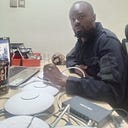Why Should You Choose a Surveillance Hard Drive Over a Computer Hard Drive for Your CCTV Security System?
Installers and owners of CCTV security systems frequently substitute standard desktop hard drives for surveillance hard drives due to lack of knowledge, availability, or budgetary constraints.
Although all alternatives are technically interchangeable and still functional, they have been specifically designed to function best in their respective fields for optimum longevity and efficiency.
Surveillance hard drives are identical to PC hard drives in terms of basic outward appearance, functionality, and attachment; however, the former has features and optimizations designed especially for video surveillance applications, such as NVRs, DVRs, video servers, or any other video management system.
Ruggedness and Dependability
Standard PC hard drives are not meant for continuous operation and are prone to failure when used for continuous, high-density, round-the-clock operations in a surveillance environment. In contrast, surveillance-grade hard drives are designed to continuously record high-definition footage from multiple video streams or cameras.
The write head on both kinds of hard drives is driven across spinning disks by voice coil magnets; the size and configuration of these magnets dictates how quickly the write head can move across the disk. Surveillance hard drives have larger, stronger magnets to permit faster write accelerations, which improves the drive’s performance and dependability as compared to a desktop drive. They also use more robust damper plates to support the write heads.
Surveillance hard drives handle workload differently to PC hard drives
While surveillance hard drives have been optimized to devote roughly 90% of their resources to writing and the remaining 10% to reading and transferring, PC drives are designed to do frequent and simultaneous read, write, and data transfer operations.
In essence, a DVR or NVR records continuously from linked cameras, compresses the captured footage, and stores it on an attached hard drive approximately 90% of the time. Operations like playback, copying, transferring, and backing up footage require the remaining 10% or less.
A CCTV system constantly writes substantial volumes of high-definition footage from multiple sources or streams onto the hard drive, 24/7, in contrast to a PC, which writes, reads, and transfers little amounts of data to the drive on occasion.
As a result, even though PC hard drives can still perform the same function, they are not specifically designed to handle heavy write workloads, which surveillance hard drives must be able to endure. Desktop hard drives are made to run for eight to twelve hours a day, with breaks for powering down in between workdays. If they are used excessively, this can drastically shorten their lifespan.
Additionally, surveillance drives can have a workload rating that specifies how much data should ideally pass through them. This capability is excellent for minimizing the drive’s chance of failure.
Price
Because surveillance hard drives require customized firmware to withstand the high write workload and general dependability requirements of a DVR or NVR, they do cost a little more than standard PC hard drives. PC hard drives typically wear out far more quickly than other storage devices since they aren’t made for the constant use required in surveillance applications. The costs associated with replacing them when their short lives are coming to an end or losing important security footage may be exceedingly costly.
Power Consumption and Management
The firmware on surveillance and video hard disk drives has been designed for energy conservation, which results in a low power profile that helps the drives run continuously at optimal operating temperatures — a condition that would be catastrophic for a hard drive otherwise.
In a nutshell…
The essential operations of a hard disk drive can still performed by both a PC drive and a surveillance drive, however, the latter is specifically designed for surveillance applications where continuous high-density writing is required.
Except in cases when the PC is meant for a particular purpose, a conventional PC hard drive would be more than sufficient. For a PC, network-attached storage (NAS) devices are a better option if high-intensity, long-term storage is needed.
NAS is designed for round-the-clock operation and sporadic data retrieval and storage by numerous users, much like surveillance disks.
—
